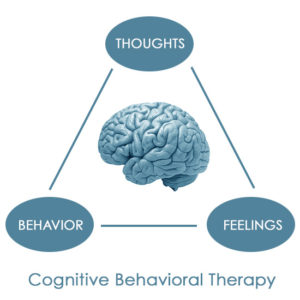 John Condron is a psychotherapist who works with children, adolescents and adults. His primary approach is known as “Neuroscience-Informed Cognitive Behavior Therapy.” This cutting-edge approach combines recent research findings from the field of brain science with the long-established principles of Cognitive Behavior Therapy. Based on the idea that our thoughts trigger our feelings and behaviors, CBT is among the most rapid and effective of all psychotherapeutic approaches. Arguably, CBT was the first “evidence-based practice” in mental health, and forms the basis of the most effective treatments out there. Taking an average of 16 sessions or less to address most problems, the goal of CBT is to help the client understand that our behaviors and emotions are choices and are not controlled by external forces like people, situations, and events. CBT therapists do not tell people how they should feel, but they work to help us change the way we think and behave in order to feel or act the way we want. This is especially important in situations that cannot be easily changed, such as death, chronic illness, or poverty. John likes to say that his goal is to make the client her or his own therapist.
John Condron is a psychotherapist who works with children, adolescents and adults. His primary approach is known as “Neuroscience-Informed Cognitive Behavior Therapy.” This cutting-edge approach combines recent research findings from the field of brain science with the long-established principles of Cognitive Behavior Therapy. Based on the idea that our thoughts trigger our feelings and behaviors, CBT is among the most rapid and effective of all psychotherapeutic approaches. Arguably, CBT was the first “evidence-based practice” in mental health, and forms the basis of the most effective treatments out there. Taking an average of 16 sessions or less to address most problems, the goal of CBT is to help the client understand that our behaviors and emotions are choices and are not controlled by external forces like people, situations, and events. CBT therapists do not tell people how they should feel, but they work to help us change the way we think and behave in order to feel or act the way we want. This is especially important in situations that cannot be easily changed, such as death, chronic illness, or poverty. John likes to say that his goal is to make the client her or his own therapist.
John believes that effective therapy with children must directly involve the family. He uses the therapeutic power of play to help young children prevent or resolve psychosocial difficulties, but he does not believe that play therapy alone is ever sufficient to meet a child’s needs. He believes that, except under extraordinary circumstances like parental abuse, therapists who fail to involve and communicate with parents are failing their clients.
Though not opposed to the use of psychiatric medications, John does not believe these should be our first line of treatment, especially for Depression or Anxiety Disorders. Research indicates that medications are no more effective than Cognitive Behavior Therapy in the treatment of Depression;. however, longer-term results are usually better with CBT. The difference is even greater for anxiety disorders. A recent study found that CBT is more effective than medications for Social Anxiety Disorder, and that CBT is equally as effective as drug treatment for childhood anxiety disorders and for Panic Disorder in adults. Given the side-effects, John strongly advocates a “therapy first” approach.
John was originally trained as a behavior analyst. This is generally considered the most data-based and “scientific” approach to changing human behavior and is widely used with children with behavior problems, and with both children and adults with intellectual disabilities, brain injuries, autism spectrum disorders and other such conditions. The focus of this very practical approach is on changing observable behavior rather than thoughts or emotions.
John is also a certified clinical hypnotherapist, which means he is well prepared to delve into problems caused by the subconscious mind, many of which are not amenable to strictly cognitive or behavioral strategies. He is also able to help people with habit-based behavior problems, such as smoking, vaping, and other compulsive behaviors.
John is trained in the Gottman approach to couples counseling, though he is not wedded to any one approach or theory and uses a wide variety of approaches to helping people resolve their relationship issues. In the process of obtaining formal training as a “Holistic Sex Therapist” through the Institute for Sexuality Education and Enlightenment, John realized he has been a sex therapist since the 1980s! He takes a “sex positive” and non-judgmental approach to a broad range of sexual and relationship issues.
John specializes in trauma therapy and behavior management. He is trained in Eye Movement Desensitization and Reprocessing (EMDR), Trauma-Focused Cognitive Behavior Therapy, Critical Incident Stress Management, Applied Behavior Analysis and other evidence-based approaches. In fact, he is the only therapist in eastern Idaho certified in Trauma-Focused Cognitive Behavior Therapy!